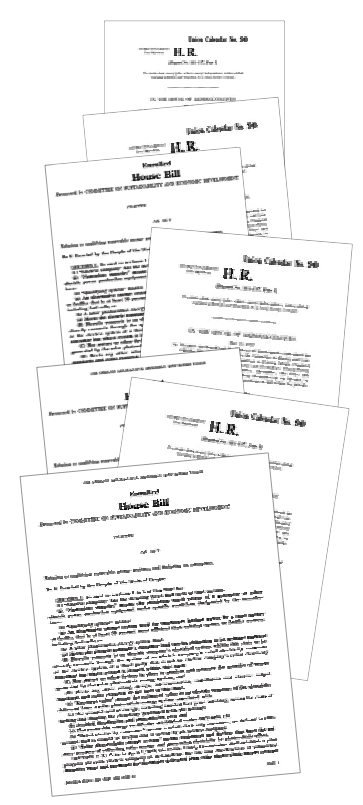Anti-Shariah Bills Under Review

In a trend that has received widespread attention on conservative talk radio and television news programs, legislators in 20 states are considering more than 40 bills that would ban or restrict the use of Shariah in their courts. Shariah law is derived from the Quran and the sayings, practices and teachings of the Prophet Muhammad, but its exact requirements are controversial, according to the U.S. Council on Foreign Relations.
So far three states—Louisiana, Oklahoma and Tennessee—have passed such measures. In November, Oklahoma voters approved a referendum that would have prevented that state’s courts from considering “international or Shariah law” in their decisions.
But before the referendum could take effect, a federal judge in Oklahoma issued an injunction, finding “the actual language of the amendment reasonably … may be viewed as specifically singling out Shariah law, conveying a message of disapproval of plaintiff’s faith.” The Oklahoma attorney general’s office filed a notice of appeal in late November.
Many of the legislators sponsoring the anti-Shariah initiatives in other states are using model legislation drafted by the American Public Policy Alliance, a nonpartisan advocacy group that describes itself as “dedicated to government transparency, government accountability and the constitutionality of U.S. and state laws and policies.”
Chandler, Ariz., lawyer David Yerushalmi, who wrote the APPA’s model act, says that, unlike the law struck down in Oklahoma, his group’s proposal is facially neutral. He believes many of the bills pending in states around the country will have a better chance of withstanding judicial scrutiny if they remain focused on excluding the use of international law in state courts and not on Shariah itself.
See a list of pending anti-Shariah legislation at Gavel to Gavel.
In South Dakota, state Rep. Phil Jensen says he learned from the Oklahoma decision to omit the word Shariah in similar legislation he sponsored. (The bill has since died in committee.) In South Carolina, state Sen. Michael Fair, a sponsor of an anti-Shariah bill in his state, says that he too has heeded the tactical wisdom to “keep it bland.”
Yerushalmi emphasizes that his group’s model legislation is not trying to demean or defame anyone’s particular religious beliefs. He says, however, that certain politicians who have taken up his cause are “operating at a visceral level” in response to what they feel is an encroaching Islamic threat.
Meanwhile, American Muslim groups have raised concerns that such legislation could invalidate Muslim wills and certain international business agreements.
Gadeir Abbas, a staff attorney for the Washington, D.C.-based Council on American-Islamic Relations, hopes the U.S. Supreme Court eventually takes up the issue. “The real perniciousness is that they stigmatize the community at large,” he says. “Having the Supreme Court coming down firmly on our side would do something about that stigma.”
The local chapter of CAIR filed suit against the Oklahoma measure.
The ABA’s Section of International Law recently organized a task force to review the spate of anti-Shariah bills. The task force may make policy recommendations to the section’s governing council; and, if approved by the section, the recommendations could then be taken up by the ABA’s House of Delegates.
“Our concern is going to be with a blanket prohibition or reference to Shariah or any other body of law,” says Atlanta lawyer Glenn Hendrix, the section’s past chair, who is heading the task force.
The group began its work in mid-February and Hendrix emphasizes that it hasn’t reached any official conclusions.
Write a letter to the editor, share a story tip or update, or report an error.


